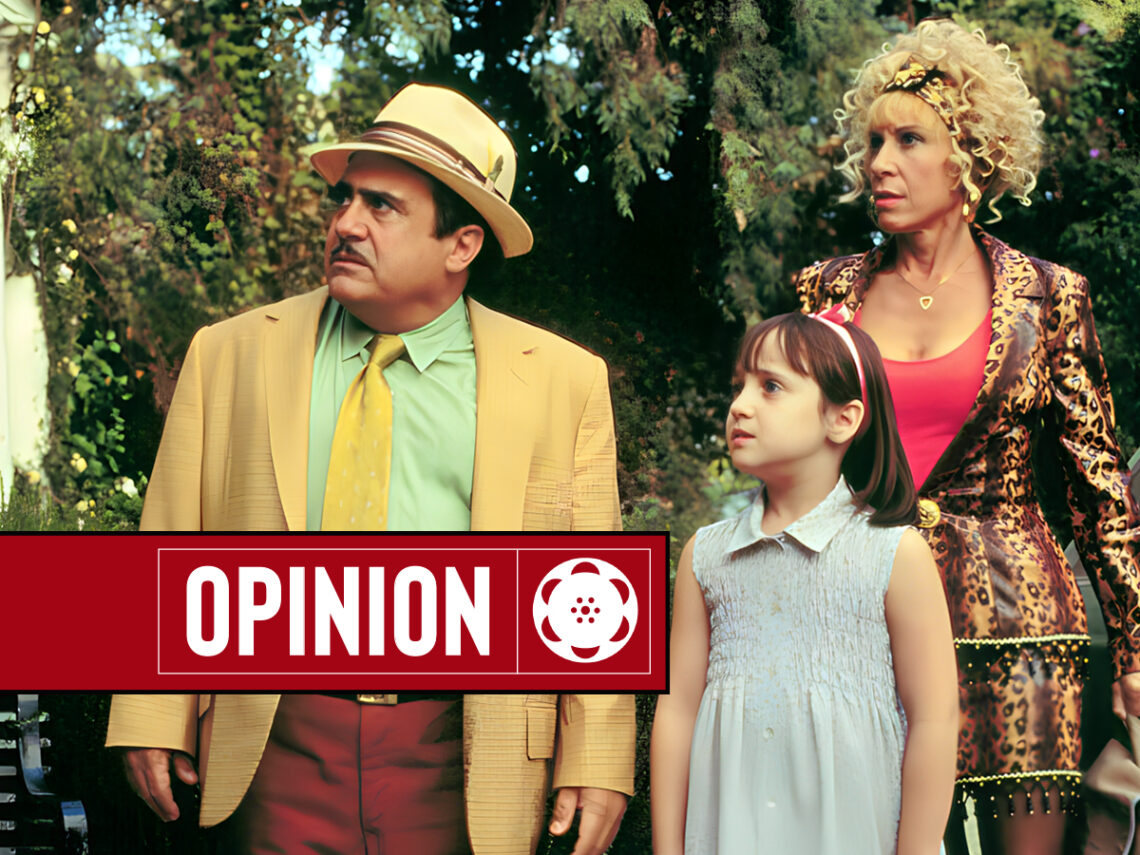Danny DeVito’s adaptation of the Roald Dahl book Matilda continues to have a charm of its own decades later. DeVito’s vision captured the essence of Dahl’s twisted and slightly macabre novel.
As far as children’s stories go, Matilda is one that deals with pretty grim themes of parental neglect, child abuse, and even murder to boot.
The story follows the brilliant and telekinetically gifted Matilda Wormwood (Mara Wilson), who is not only neglected but often mistreated by most of the adults in her life.
Despite her complicated family life and tyrannical headmistress, Miss Trunchbull (Pam Ferris), Matilda remains determined and resourceful.
From the twisted mind of Roald Dahl
Dahl, renowned for his imaginative narratives, has long been associated with children’s literature. However, his work has consistently pushed the boundaries of traditional children’s storytelling. Dahl’s stories often feature unconventional protagonists, morally ambiguous characters, and plots that challenge the reader’s perceptions of right and wrong. This daring approach to children’s literature consistently garnered Dahl both praise and criticism during his heyday. His refusal to sugarcoat the world or underestimate the intelligence of his young readers made his stories controversial yet timeless.
Matilda, one of Dahl’s most beloved works, embodies these characteristics beautifully. The novel’s dark humour, intricate characters, and unapologetic portrayal of a harsh world make it a compelling read for both children and adults. The presence of the dreadful chokey at Matilda’s school is a shining example of gallows humour at its best. The fact that it is used in a children’s story, which is essentially about standing up to your bullies, makes this one for the ages. Even grown-ups—like Miss Honey (Embeth Davidtz) and us, the viewers—need timely reminders and inspiration to push back at iron-fisted authorities.
The wonderful lens of Danny DeVito
DeVito, who also stars in the film as Matilda’s father, Harry Wormwood, captures the whimsy and darkness of the story. A pivotal moment that changes things for Matilda comes when Harry accidentally tells her that bad people, not just badly behaved children, deserve to be punished. This concept is revolutionary to a child and even resonates with adults who are more than happy to toe the line and look the other way.
Danny DeVito and Rhea Perlman’s portrayal of the hilariously despicable Harry and Zinnia Wormwood illustrates Dahl’s knack for creating morally complex characters. Their one act of kindness towards Matilda involves letting Miss Honey legally adopt her as they make a run for the hills.
The enduring appeal of Matilda lies in its ability to entertain and stir its audience alike. It is a testament to the sheer power of Dahl’s storytelling, which refuses to be bound by traditional genre conventions and remains a source of fascination and admiration.
If you want more of Roald Dahl’s goodness in cinematic form, then tune into the four Wes Anderson shorts releasing this week on Netflix.
